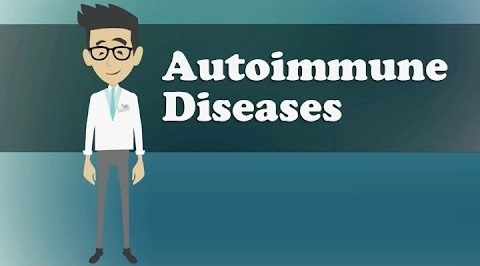Alternative Therapies
- Alternative Medicine
- Access Bars
- Access Body Processes
- Access Consciousness
- Access Energetic Faclift
- Acupressure
- Acupuncture
- Akashic Records
- Ancient Magnetism
- Angel Healing
- Aromatherapy
- Aura Reading
- Ayurveda
- Bach Flower Remedies
- Blueprint Numerology
- Breathwork
- Chakra Healing
- Cosmetic Acupuncture
- Crystal Healing
- Cupping Therapy
- Divine Healing Hands
- Distance Healing
- Emotional Freedom Technique (EFT)
- Energy Healing
- Energy Medicine
- Ergonomics
- Family Constellation
- Face Reading
- Fengshui
- Gaiadon Heart
- Geomancy
- Heal Your Life
- Graphology
- Holistic Solutions
- Holy Fire Reiki
- Homeopathy
- Ho'oponopono
- Humkara with Haleem
- Hypnotherapy
- Inner Child Therapy
- Intuitive Reading
- Jikiden Reiki
- Jin Shin Jyutsu
- Karuna Reiki
- Karmic Healing
- Lama Fera
- Lenormand Cards
- Light Language Healing
- Law of Attraction
- Manual Therapy
- Matrix Reimprinting
- Metaphor Therapy
- Meditation
- Mediumship
- Melchizedek Method
- Merlin Trinity Healing
- Merkaba Healing
- Money Reiki
- Motivational Counseling
- Mudra Healing
- Nakshatra Energies
- Naturopathy
- Neuro Linguistic Programming (NLP)
- Numerology
- Oracle Cards
- Panchakarma (Ayurveda)
- Panchkarma Holistic Healing - Mind Control
- Past Life Regression
- Pendulum Dowsing
- Physiotherapy
- Pranic Healing
- Pranic Psychotherapy
- Pythagorean Numerology
- Quantum Touch Healing
- Pyramids
- Redikall Healing
- Reiki
- Rudraksh
- Runes
- Soul Plan Reading
- Sound Healing
- Star Magic Healing
- Space Clearing
- Sujok therapy
- Tarot
- Tera MaiTM Seichem
- Tea Leaf Reading
- Theta Healing
- Twin Flame Healing
- Twin Hearts Meditation
- Unani Medicine
- Yoga
- Wicca
- Womb Healing
Diseases & Conditions
- Acne & Pimples
- Allergies
- Arthritis
- Asthma
- Behavioural Disorders
- Cancer
- Dandruff
- Diabetes
- Emotional Problems
- Gallstones
- Gastritis
- Hairloss
- Heart Diseases
- Hormonal Problems
- Hypertension
- Immune Disorders
- Infections
- Infertility
- Jaundice
- Kidney Disorders
- Liver Disorders
- Menstrual Disorders
- Migraine
- Neck & Back Pain
- Obesity
- Osteoporosis
- Peptic Ulcer
- Prevention
- Prostate Problems
- Psoriasis
- Sexual Dysfunctions
- Sinusitis
- Sleep Disorders
- Skin Diseases
- Stress
- Thyroid Disorders
- Ulcerative Colitis
- Urinary Infections
General Wellness
Autoimmune Diseases Treatment Doctors in Surat

Ms. Mukta Rastogi
Mukta Rastogi is a Life coach, Counsellor, Certified Hypnotherapist, Access Bars Practioner, Certified with Dr Brain Weiss in Past Life Regression, trained in Metaphor Therapy and Angel Card Reader. She is Proactive and dynamic spiritual healer.

Immune Disorders

Autoimmune Disorder
Put simply, an autoimmune disorder is any medical condition which occurs when a person's immune system mistakenly attacks the body's own tissue. Autoimmune disorders are one of the least known about diseases when it comes to the treatment and prevention of it. The severity of resulting conditions and treatments for such diseases vary greatly, but most physicians agree that not enough is known about the causes and cures for the majority of autoimmune disorders.
The immune system can sometimes work against the body Healthy immune systems will normally target any harmful substance which enters the body. Things like bacteria, viruses, cancer cells, toxins or any foreign organ or blood are all fair game for a healthy immune system. A correctly functioning immune system works quickly and efficiently to contain and then destroy potential intruders, often without any visible or felt symptoms. An autoimmune disorder, on the other hand, will occur when the immune system mistakenly begins to attack non-harmful bodily substances and cells, sometimes resulting in extremely serious diseases. There are a wide range of autoimmune disorders - some eighty that are currently recognized - but these diseases are varied and difficult to study, resulting in slow medical advancement in the area. That said, science has made significant leaps in its understanding of autoimmune diseases, with more hope on the horizon in the form of still experimental gene therapy which may finally offer a way to treat the underlying cause of any autoimmune disorder. The seriousness of the various autoimmune disorders vary greatly, with symptoms running a spectrum of severity from aches and pains, to hair loss and skin damage, and even life threatening loss of tissue and intense pain. Though researchers have identified some factors which lead to autoimmune disorders, little is understood about how the immune system chooses its targets, resulting in poorly suited treatments. Some research has indicated that not all autoimmune reactions are bad. Indeed, it seems that a low level of autoimmune action can be beneficial in strengthening the immune system. Studies using rats have shown that autoimmune reactions may act as a way for the body to keep its immune system in good shape between fights. The targets of autoimmunity may act like a boxer's punching bag, providing a way for the immune system to exercise itself when there is no opponent to pummel. This may show how autoimmune disorders originates in the first place, but does not explain the massively increased severity of autoimmune triggered diseases. AUTOIMMUNE DISORDERS Most medical researchers agree that autoimmune disorders are rarely curable with current medical understanding, and instead focus their efforts on reducing symptoms by treating aspects of the disorder as they are identified. While any autoimmune disorder may ultimately be treated by suppressing the immune system, this creates its own serious risks to health, and is only usually considered where severe pain or life threatening symptoms are presented. Immune suppression is employed to help the body accept organ and tissue transplants where the new tissue would normally be rejected by an immune response - this may give some idea of the severity of symptoms seen by those suffering from the most serious autoimmune disorders such as multiple sclerosis and systemic lupus erythematosus, which both may lead to even more serious diseases. Less physically dangerous, but no less damaging, are the many autoimmune disorders which negatively impact a sufferer's lifestyle and appearance. These disorders have often been noted to cause psychosocial issues such as social phobia, anxiety, and depression. Alopecia areata, which causes loss of hair, can instigate significant and lasting psychological trauma, with a severity that some researchers have likened to the emotional impact felt by those suffering from terminal illness. A majority of people who suffer from the more extreme cases of alopecia areata can suffer from some form of mental illness such as depression.


